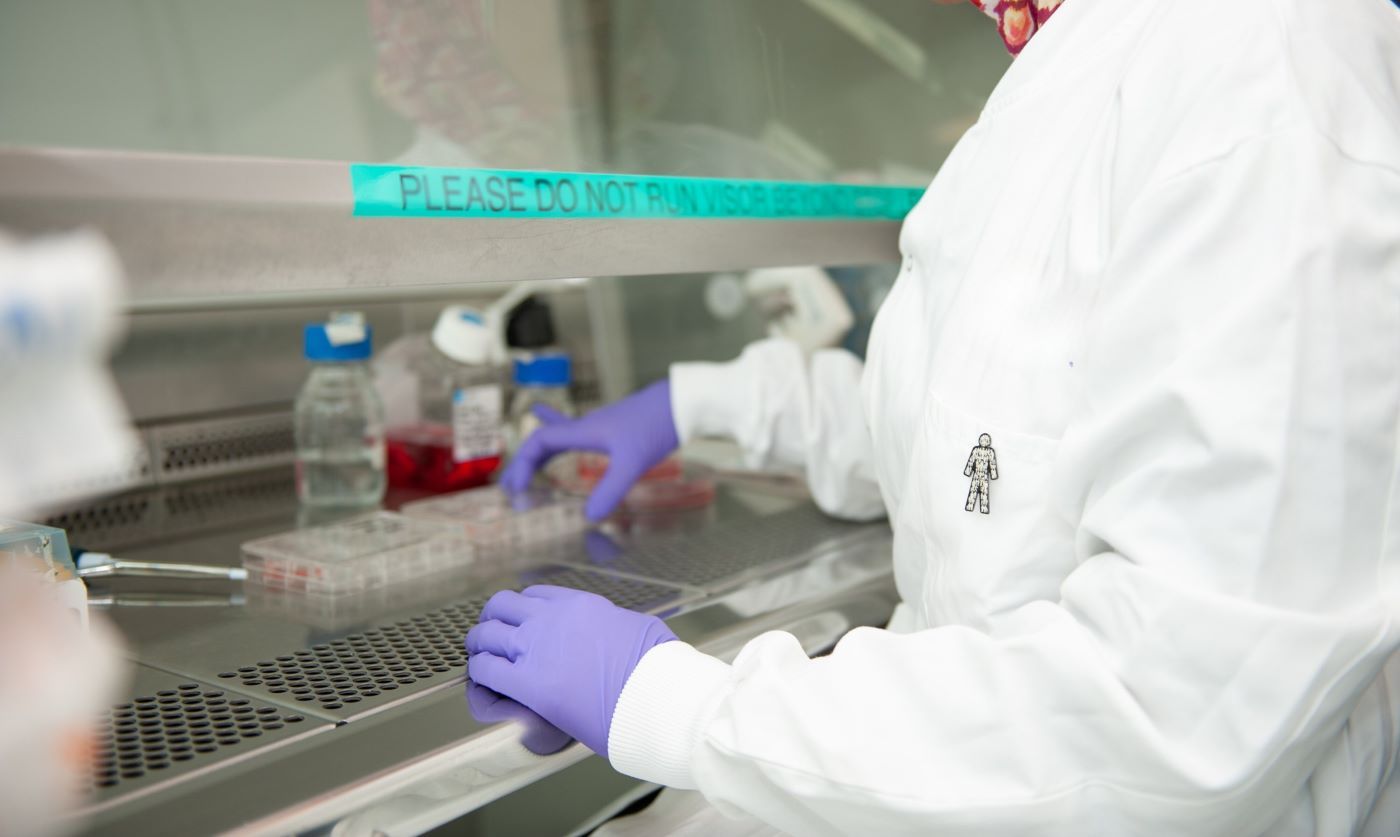
Reactivating prostate cancer’s handbrake to slow or stop its spread

Grant information
Reference: TLD-CAF23-005
Researcher: Dr Corinne Woodcock
Institution: University of Nottingham
Award: £271,579
What you need to know
- One way that prostate cancer can accelerate its spread is by deactivating a ‘handbrake’ our bodies use to keep cell growth under control.
- Dr Woodcock’s research aims to reactivate this handbrake and therefore prevent, slow, or stop the spread of prostate cancer.
- Treatments that can do this are already being trialled in other cancer types so if this research is successful, it could be possible to extend this trial to men with prostate cancer.
About Dr Woodcock
Dr Woodcock completed her bachelor's degree at the University of Lincoln, followed by a PhD at the University of Nottingham.
Her PhD looked at how the small changes to prostate cancer cells' genetic instructions influence how they respond to hormones (such as testosterone) and hormone therapy. During this time, she published multiple papers and presented her research at conferences around the world.
Since 2021, Dr Woodcock has been working as a postdoctoral research fellow in the lab of Professor Nigel Mongan, studying how prostate cancer cells modify the way they carry out their genetic instructions to become resistant to hormone therapy.
This grant will use Dr Woodcock’s expertise to take a different approach to prostate cancer treatment, building on her findings while exploring a promising new path to treatments for men with the disease.
After my grandfather passed away from prostate cancer, I wanted to pursue a career developing new treatments so that, in the future, no one will die from prostate cancer
What will Dr Corrine Woodcock do?
Our genes are like an instruction manual, telling our cells how to make all the building blocks needed for us to grow and survive. When our cells carry out these instructions, they can add a ‘tag’ to some steps, which usually means those steps should be skipped.
Normally, this is useful because it gives our cells a way to control themselves. For example, it means our cells can dial up or down the amount of the proteins they make in response to stress, temperature changes, food intake, and more.
But Dr Woodcock’s previous research has found that prostate cancer can also use this tagging system (known as RNA methylation) to its advantage.
She has found that prostate cancer uses it to bypass tumour suppressor genes, which normally act as a ‘handbrake’ to stop cells growing and spreading out of control.
Dr Woodcock aims to find out if a drug that targets RNA methylation can help reactivate this handbrake and stop a huge number of processes that cooperate to drive prostate cancer progression.
She will test an existing drug that is already being trialled in other cancer types to determine if it also reduces prostate cancer progression. She will use lab-grown 3D models of prostate cancer tumours, and samples taken from men with the disease. She also aims to identify which men may benefit from this treatment.
This would lay the groundwork for a new clinical trial of the drug in men living with the disease.
For this project, Dr Woodcock will work closely with patient representatives in Nottingham and nationally. She will collaborate with Professor Lukas Kenner at the Medical University of Vienna, in Austria. As well as regular virtual meetings with Professor Kenner, Dr Woodcock will visit the university once a year to undertake training in data processing and analysis and to access his group’s archives of samples and data.
This will make it easier and quicker for her research to move towards clinical trials if it is successful.
How will this benefit men?
This research could lead to new treatments that save and extend men’s lives by keeping prostate cancer under control for longer.
What’s more, since a similar treatment is already being trialled in other cancer types, if this project is successful, it would take less time than usual to get a clinical trial up and running for prostate cancer.
Help us fund more research like this
Your donation helps us fund lifesaving research into better treatments for prostate cancer.

